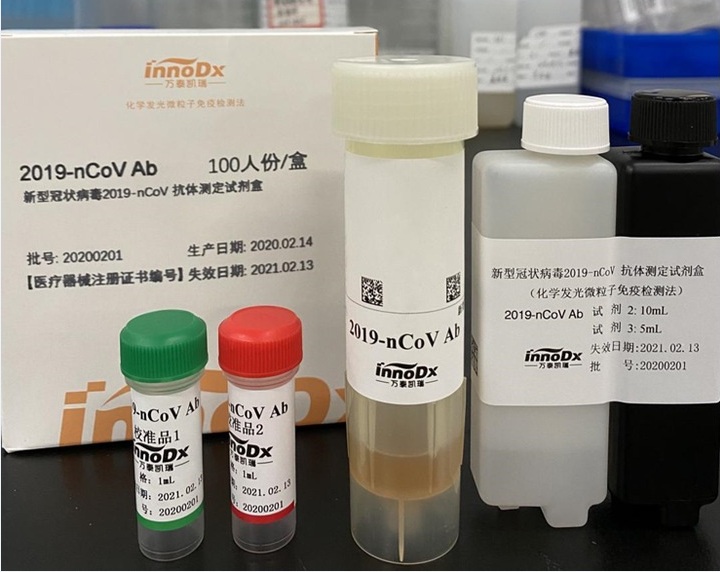
On February 14, the clinical trial demonstrated higher sensitivity and specificity of the antibody test kit for the detection of COVID-19. The test kit, based on the techniqueof double-antigen sandwich-based enzyme-linked immunosorbent assay (ELISA), is the fruit of XMU's parnternership with The Third People's Hospital of Shenzhen and Beijing Wantai Biological Pharmacy Enterprise Co., Ltd., a subsidiary of China's YangShengTang Group (hereinafter referred to INNOVAX). Of the 173 confirmed covid-19 patients in this trial, 93.1% were tested positive for antibodies, while none of the 33 healthy subjects were tested positive. This is the first novel coronavirus total antibody testing reagent that has been put into a large sample clinical trial. The reagent can simultaneously detect all the novel corona-specific antibodies including IgM and IgG with higher sensitivity, and its specificity is better ensured by the method of ELISA. Another chief merit of the reagent is the rapidity of testing, making it possible for two medicalworkersto run 1500 tests within 12 hours.

In face of the sudden outbreak of the epidemic, Xiamen University immediately set in motion the emergency scientific research. By joining forces with the Third People's Hospital of Shenzhen andINNOVAX, multiple novel coronavirus antibody test kits have come out one after another, including the ones of total antibody, IgM antibody and IgG antibody.
INNOVAX is now stepping up its efforts to ramp up the production of the novel coronavirus antibody detection reagent based on the technique of ELISA, and in the meantime, the company is applying for the green channel for registration. At present, the production capacity of this month can provide 100,000 Covid-19 tests, and in one month’s time, it will be further expanded to provide up to 1 million tests per month. Its subsidiary, Xiamen Innovax Biotech CO., LTD., is switching to the production of the novel coronavirus antibody detection reagent using chemilumineseent immunoassay technology (CLIA). This reagent has been shown to be efficient, high-throughput, and fully-automatic, and thus better preventive of the risk of viral infection among medical staff during operation.
Source: School of Public Health